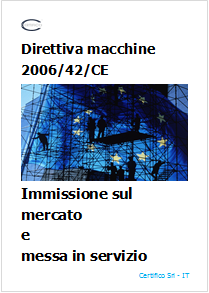// Documenti disponibili n: 46.500
// Documenti scaricati n: 36.502.178
COM(2018) 237 final | 25 April 2018
Artificial intelligence (AI) is already part of our lives – it is not science fiction. From using a virtual personal assistant to organise our working day, to travelling in a self-driving vehicle, to our phones suggesting songs or restaurants that we might like, AI is a reality. Beyond making our lives easier, AI is helping us to solve some of the world's biggest challenges: from treating chronic diseases or reducing fatality rates in traffic accidents1 to fighting climate change or anticipating cybersecurity threats.
In Denmark, AI is helping save lives by allowing emergency services to diagnose cardiac arrests or other conditions based on the sound of a caller's voice. In Austria, it is helping radiologists detect tumours more accurately by instantly comparing xrays with a large amount of other medical data. Many farms across Europe are already using AI to monitor the movement, temperature and feed consumption of their animals. The AI system can then automatically adapt the heating and feeding machinery to help farmers monitor their animals' welfare and to free them up for other tasks. And AI is also helping European manufacturers to become more efficient and to help factories return to Europe.
These are some of the many examples of what we know AI can do across all sectors, from energy to education, from financial services to construction. Countless more examples that cannot be imagined today will emerge over the next decade. Like the steam engine or electricity in the past, AI is transforming our world, our society and our industry. Growth in computing power, availability of data and progress in algorithms have turned AI into one of the most strategic technologies of the 21st century. The stakes could not be higher. The way we approach AI will define the world we live in. Amid fierce global competition, a solid European framework is needed.
...
Artificial intelligence (AI) refers to systems that display intelligent behaviour by analysing their environment and taking actions – with some degree of autonomy – to achieve specific goals. AI-based systems can be purely software-based, acting in the virtual world (e.g. voice assistants, image analysis software, search engines, speech and face recognition systems) or AI can be embedded in hardware devices (e.g. advanced robots, autonomous cars, drones or Internet of Things applications). We are using AI on a daily basis, e.g. to translate languages, generate subtitles in videos or to block email spam. Many AI technologies require data to improve their performance. Once they perform well, they can help improve and automate decision making in the same domain. For example, an AI system will be trained and then used to spot cyberattacks on the basis of data from the concerned network or system.
add more in attachment

Il Documento illustra, con un esempio pratico, il “metodo di procedere” alla VR Direttiva macchine in accordo con l'Appendice...

Un Documento di approfondimento sulla "Immissione sul mercato" e "messa in servizio" di macchine in accordo con la Direttiva m...

Nuova Ed. 2016 della norma armonizzata EN 378-2 che detta i requisiti di sicurezza ed ambientali degli Impianti di refri...
Testata editoriale iscritta al n. 22/2024 del registro periodici della cancelleria del Tribunale di Perugia in data 19.11.2024